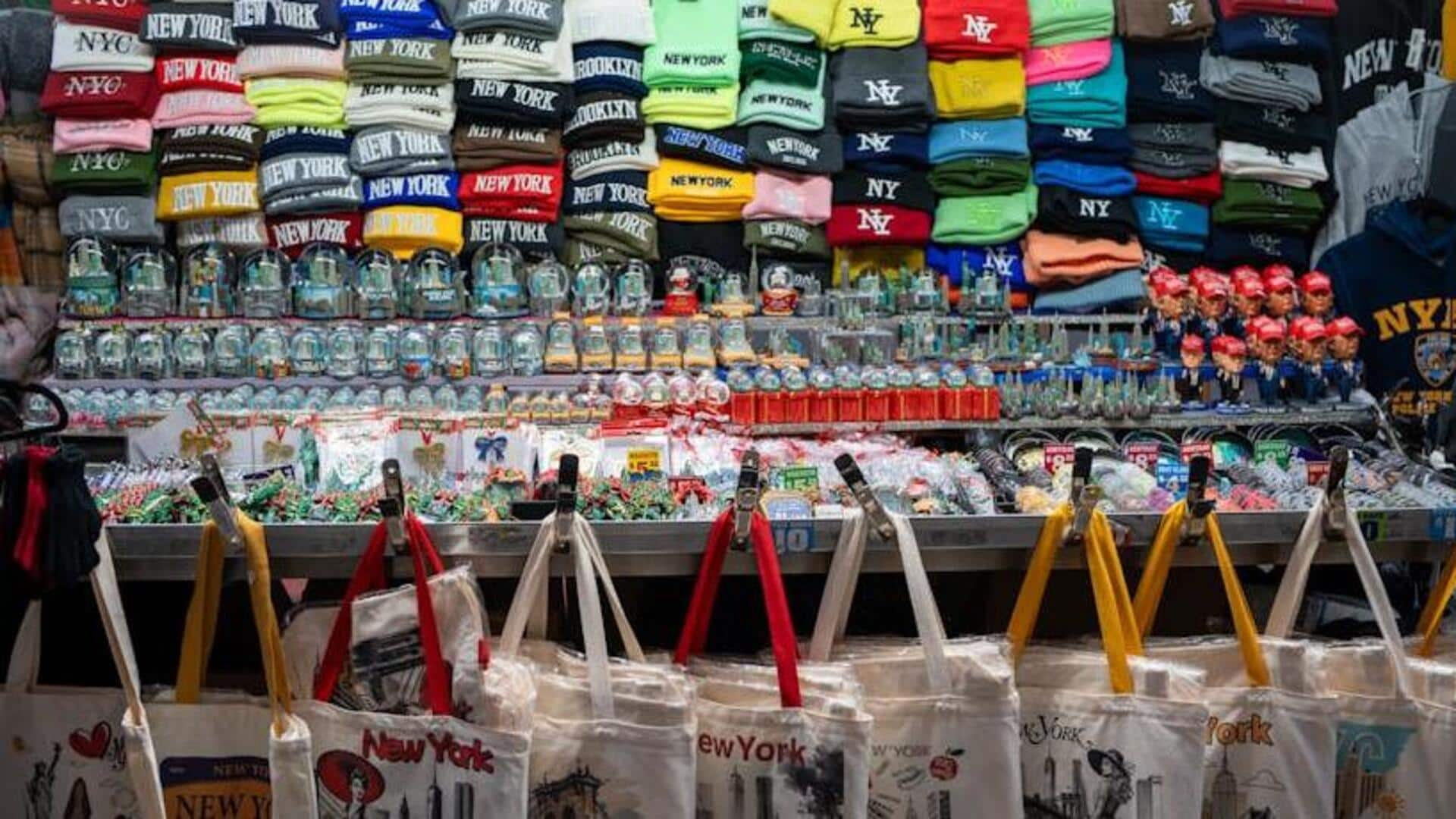For travelers: How to avoid overpriced souvenir shops
What's the story
Travelers frequently look forward to purchasing souvenirs as keepsakes of their adventures. However, not all souvenir shops offer a fair deal.
Many popular tourist destinations feature overpriced souvenir shops that take advantage of tourists' enthusiasm for memorabilia.
This article provides tips on spotting and steering clear of these pitfalls, ensuring travelers can make informed decisions when buying souvenirs.
Identifying signs
Spotting the tourist traps
The first step in not getting ripped off is knowing how to spot an overpriced souvenir shop.
These stores are usually located right next to popular tourist attractions and are stocked with mass-produced items that might not even be from the destination.
If the shop is selling $10 postcards or $20 keychains that you can buy elsewhere for a lot less, that's a pretty clear sign.
Value matters
Quality over quantity
Don't get tricked by the quantity game, aim for quality and authenticity.
Authentic handcrafted items may be more expensive but they hold genuine value as they embody the true craftsmanship indigenous to the region.
For example, a $30 handmade pottery piece may sound pricey against a $5 factory-produced mug but it carries a lot more cultural essence and uniqueness.
Informed choices
Research before you buy
Doing a bit of homework before your vacation can save you cash on souvenirs.
Research local products and their typical costs on the internet.
You'll be able to identify overpriced shops more easily with this information.
For example, if a high-quality leather wallet costs around $50 on average, you won't be fooled into paying $80 for a low-quality one at a tourist trap.
Negotiation skills
Bargaining can help
In numerous cities worldwide, haggling is a norm, particularly in markets and street stalls selling souvenirs.
If you believe an item is excessively priced, feel free to negotiate a better deal.
Vendors frequently inflate prices, anticipating tourists to haggle down by 10% or 20%.
However, always negotiate respectfully, and know when to stop when a price is reasonable for both parties involved.
Strategic shopping
Timing your purchase
Finally, timing is key to saving money on souvenirs.
Shopping during off-peak hours or late in the day when sellers want to close out their sales can land you a good deal.
Plus, buying souvenirs away from the main tourist hotspots not only helps you find cheaper prices, but also unique items that truly capture your travel experience.
